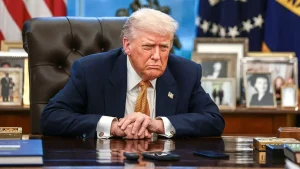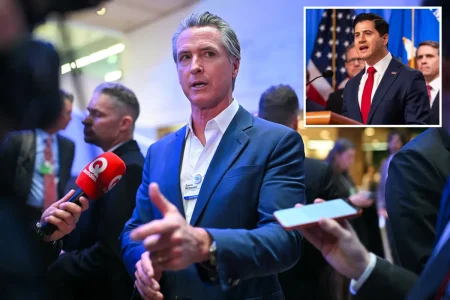Kim Jong Un’s Recent Remarks Following Trump’s South Korea Visit Announcement
Kim Jong Un, the leader of North Korea, has made notable comments in the days following former President Donald Trump’s announcement of plans to visit South Korea in late October for a regional summit. This timing suggests a potential strategic response from the North Korean leadership, possibly aimed at influencing regional dynamics ahead of this high-profile visit.
The North Korean leader’s statements come during a period of fluctuating tensions on the Korean Peninsula. While the specific content of Kim’s remarks wasn’t detailed in the original brief, such comments typically address North Korea’s position on international relations, defense capabilities, or economic policies. Given the historical complexity of U.S.-North Korea relations, particularly during Trump’s previous presidency which saw both unprecedented summit meetings and periods of heightened rhetoric, Kim’s current comments likely reflect North Korea’s calculated approach to diplomatic positioning.
Trump’s planned visit to South Korea represents a significant diplomatic event for the region, potentially signaling renewed American engagement with East Asian security concerns. Regional summits often address pressing issues including denuclearization efforts, economic cooperation, and collective security arrangements. For North Korea, which carefully monitors such international gatherings, the announcement of Trump’s participation may have triggered a need to reassert the country’s stance on key matters that might be discussed during the summit.
The relationship between North Korea and the United States has experienced dramatic shifts over recent years, with periods of both diplomatic breakthrough and serious confrontation. During Trump’s previous term in office, he and Kim Jong Un held historic face-to-face meetings that temporarily appeared to ease decades of hostility, though significant progress on issues like denuclearization remained elusive. This complicated history likely informs both leaders’ current positioning and public statements as they navigate this new chapter of regional diplomacy.
South Korea, as the host nation for the upcoming summit, occupies a central position in these developing dynamics. As a key U.S. ally with vital security and economic interests at stake in relations with its northern neighbor, South Korea’s role in facilitating regional dialogue cannot be overstated. The summit provides an opportunity for South Korean leadership to advance its priorities regarding peninsula stability, economic cooperation, and potentially progress toward reconciliation efforts that have experienced setbacks in recent years.
As October approaches, observers of international relations will closely monitor further statements from all parties involved. The interplay between Kim’s comments, Trump’s visit, and the broader regional response will offer insights into the future direction of Korean Peninsula security dynamics. While immediate breakthroughs may be unlikely, the diplomatic positioning happening now establishes important context for understanding how these complex relationships might evolve in the coming months and beyond.







